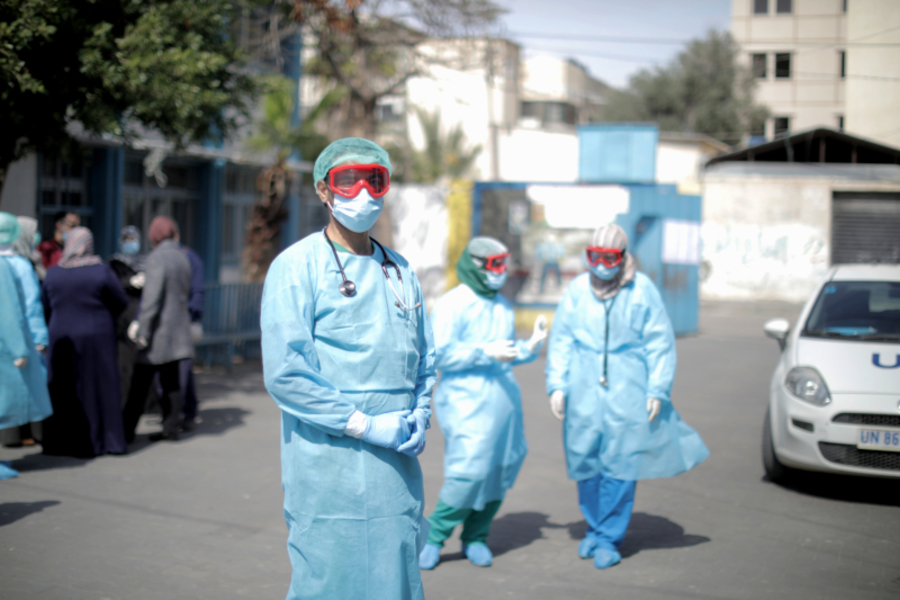Conferences and debates
Index / Activities / Conferences and debates / Humanitarian action in conflict zones: the impact of COVID-19
Humanitarian action in conflict zones: the impact of COVID-19
From April 29, 2020 until May 06, 20207:00 p.m.
ONLINE
Casa Árabe’s YouTube channel #QuédateenCasa #JustStayHome
7:00 p.m.
In Spanish.
Representatives from Doctors Without Borders and the United Nations Relief and Works Agency for Palestine Refugees (UNRWA) are giving this live conference on Wednesday, May 6. It will be taking place on our YouTube channel.
We are all aware that the pandemic is affecting everybody, but it is not doing so equally. Conflict zones are especially prone to uncontrolled spreading of virus outbreaks. The risk of greater COVID-19 contagion is made worse by high levels of insecurity, political fragmentation and a health system in ruins, coupled with weak oversight and large numbers of migrants, refugees and internally displaced persons. Yemen is already considered to be undergoing the greatest humanitarian crisis in the world, 80% of its population now having become dependent upon aid. In Gaza, the population is suffering from malnutrition, poorly controlled diseases, high housing density and high rates of tobacco use. In Syria and Libya, the violent power struggle is leading to a lack of cooperation with the same victim as always: the civilian population. At this round table discussion, Casa Árabe is inviting two humanitarian action experts to analyze the present and future in these regions vulnerable to potential spreading of the coronavirus.
Participating in the discussion will be Teresa Sancristóval, Emergencies Coordinator for Doctors Without Borders, and Raquel Martí, Executive Director of UNRWA Spain (United Nations Relief and Works Agency for Palestine Refugees). The event will be moderated by Karim Hauser, Casa Árabe’s International Relations Coordinator.
You can watch the conference live on Wednesday, May 6 at 7:00 p.m. on our YouTube channel.
Participating in the discussion will be Teresa Sancristóval, Emergencies Coordinator for Doctors Without Borders, and Raquel Martí, Executive Director of UNRWA Spain (United Nations Relief and Works Agency for Palestine Refugees). The event will be moderated by Karim Hauser, Casa Árabe’s International Relations Coordinator.
You can watch the conference live on Wednesday, May 6 at 7:00 p.m. on our YouTube channel.

